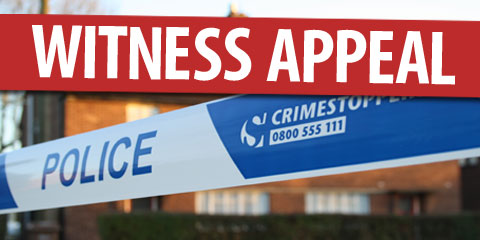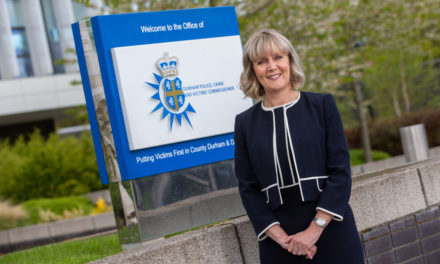“If you are experiencing stalking, please tell someone. If you’re not ready to talk to police, there are other people who can help.”
That’s our message as Durham Constabulary comes together with partners to mark national Stalking Awareness Week, which runs from April 22 to April 26.
Led by the Suzy Lamplugh Trust, it aims to highlight what constitutes stalking and help signpost those who are suffering to organisations who can help.
Stalking is an offence that can dominate the life of a victim due to the obsessive and unwanted fixation shown by the suspect.
It is defined by the Suzy Lamplugh Trust as, ‘a pattern of unwanted, fixated and obsessive behaviour which is repeated, persistent, intrusive, and causes fear of violence or endangers alarm and distress in the victim’.
The stalker can be someone known to the victim, such as an ex-partner or friend, or it might be a stranger.
Stalking may include:
- regularly following someone
- repeatedly going uninvited to their home
- regularly sending flowers or gifts
- making unwanted or malicious communication
- checking someone’s internet use, email or other electronic communication
- hanging around somewhere they know the person often visits
- interfering with their property
- watching or spying on someone
- identity theft (signing-up to services, buying things in someone’s name)
To help raise awareness of stalking, Durham Constabulary teamed up with The Alice Ruggles Trust in 2019 to raise awareness of unhealthy relationships and stalking with schoolchildren.
It followed the murder of Alice, who was just 24 when she was killed by her ex-boyfriend, Trimaan Dhillon, after three months during which he bombarded her with messages, hacked into her social media, and much more.
He drove 120 miles from his Army base in Edinburgh several times to try to see her, and then eventually to kill her in her Gateshead home in 2016.
Through the partnership, all students across County Durham and Darlington aged 14 to 16 now receive educational sessions on stalking and coercive behaviour.
The sessions take place in school assemblies and offer practical tools to help students identify this type of behaviour, and what to do if they experience it.
Detective Chief Inspector Neil Fuller, from Durham Constabulary, said: “Stalking can have a devastating impact on people’s lives.
“It can start off as something subtle, such as unwanted gifts or multiple phone calls throughout the day, but can escalate quickly, to the point where victims may not be able to go about their normal life for fear of what their stalker may do next.
“This in turn can have a detrimental impact on their mental health and can leave them feeling isolated, anxious, or afraid. In the most serious of cases, it can lead them becoming physically harmed by the perpetrator, or, in the very worst cases, even result in death.
“That’s why it’s so important that we continue to talk about this and ensure people know the signs, particularly with younger generations who may not be aware that online stalking is a crime.
“If you are experiencing stalking, no matter how small or insignificant you think your stalker’s behaviour is, tell someone. As police, we will do everything we can to investigate and bring your perpetrator to justice and can provide safeguarding, support, and reassurance.
“If you’re not ready to report to the police, we work alongside a number of partner agencies and charities who can help.”
If you’re experiencing stalking, call police on 101, or dial 999 in an emergency.
Reports can also be made online at www.durham.police.uk
More advice and support:
- National Stalking Helpline – 0808 802 0300
- Suzy Lamplugh Trust – www.suzylamplugh.org
- Alice Ruggles Trust – www.alicerugglestrust.org
- Paladin National Stalking Advocacy Service – www.paladinservice.co.uk










